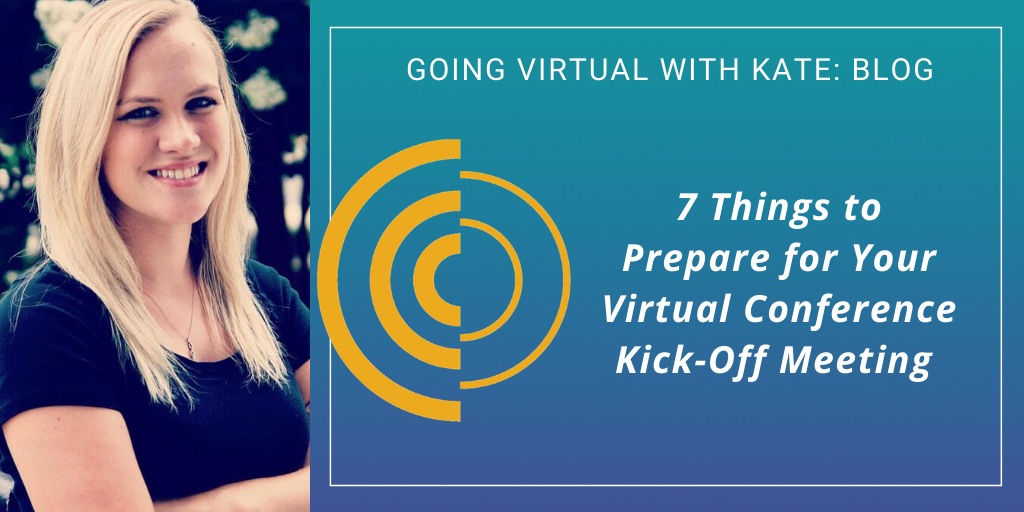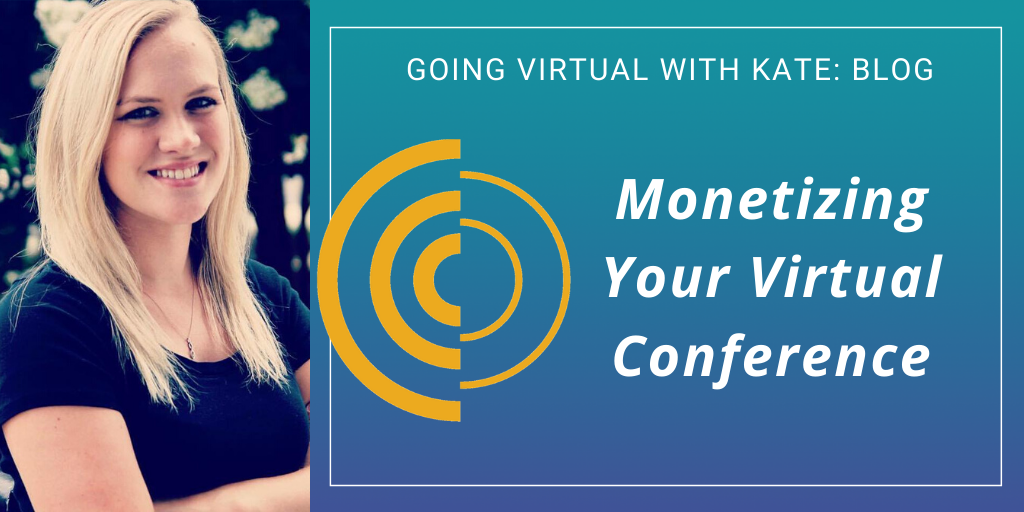
7 Things to Prepare For Your Virtual Conference Kick-Off Meeting
One of the first steps in hosting a Virtual Conference with CommPartners is to meet with a Project Manager for a kick-off call. You likely went over some details during the sales call, but now will you dive more in-depth with your producer to take your conference to the next level. To ensure this process is as smooth as possible and production gets started without a hitch, here are a few things you can prepare for this meeting.
What are the dates of your conference?
You have probably established this information by the time you have spoken with the sales team and signed a contract, but if you have reached this point and have not set dates, expect that it will slow things down.
What do you want your conference website to look like?
Elevate clients can create a completely customized conference website. Having an idea of what you’d like your site to look like will speed the creation process up. Here are some things to consider:
- Will you use a sub-domain name of your website or will you use CommPartners’ domain name?
- Will you create an entirely new design theme or base it off your main site?
- What Elevate features and widgets will you include?
- What will your page navigation look like?
You should also be prepared to share files of your color palettes, logos, and any other images associated with your organization that you’ll want to include on your site. CommPartners is happy to help with any questions regarding your conference site environment, but for a truly custom look, arrive at the meeting with a prepared vision or idea.
How do you plan to handle registration?
Decide if your organization is going to process registration internally or if registration is going through the Elevate website. Both are possible, but your producer will need to know at the onset if registration is going through Elevate. The registration process will need to be built-in to the site and time may need to be added to the production timeline.
What does your agenda look like?
At this point, you should have a timeline prepared for your conference. Details about speakers and the sessions are not necessary, but your Project Manager needs to know when each session is happening, including breaks. They need to know you have left enough time for your learners to go from session to session plus take any necessary breaks.
At an in-person conference, learners have a certain amount of time to arrive at their next session. They have time to mingle in the hall or read the literature posted around the conference. There are also plenty of breaks built into the schedule for meals, to get water, go to the bathroom, and check email. Include breaks in your virtual conference agenda, as your virtual learners are doing the same things. They need to take personal breaks, look for the next session on the conference website, or address any technical difficulties they may have. They may also experience fatigue from online learning. Most are not accustomed to learning in this way and need breaks from the screen. Be sure that you include enough breaks in your schedule to accommodate the needs of your learners.
What is your session format?
Once you have you have a clear picture of what your agenda will look like, it is helpful to know what format your sessions will take. You have many options to choose from, will your speakers use just webcams? Slides and audio? A combination? Will some sessions be pre-produced? This can be a more in-depth discussion with your Project Manager at the meeting, but be prepared to tell them your expected attendance for the conference. It will help them choose the right format for your sessions.
Will you include sponsors?
Virtual Conferences offer several monetization options, and sponsorship is one of them. Be ready to let your Project Manager know what’s been sold to sponsors and at what level. Will there be sponsor videos or will your sponsors be introducing sessions? Are you including a Virtual Exhibit Hall?
A Virtual Exhibit Hall is home on your conference site for all the resources a sponsor can distribute to attendees. In each “exhibit booth,” the sponsor can upload PDFs, videos, company descriptions and links, and other assets. The exhibit hall will be open 24/7 – giving sponsors the opportunity for constant exposure.
Be creative when thinking of ways to include sponsors and be sure to prepare a list of participating sponsors for your Project Manager.
Will you include post-conference/session actions?
Finally, decide upfront if attendees are receiving items like credit, certificates, or evaluations after they have completed something at your conference. You then need to determine if they will receive them after each session or after the whole conference has concluded. If there is anything else attendees should receive after a session or the conference, now is the time to alert your Project Manager. These are actions that must be built-in into the site during the early stages.
By considering all of these questions before your first meeting with your Virtual Conference Project Manager, you not only save them time, you also save you and your team time. It will eliminate the amount of back-and-forth that usually occurs when trying to coordinate an event like this and advances the production timeline.


